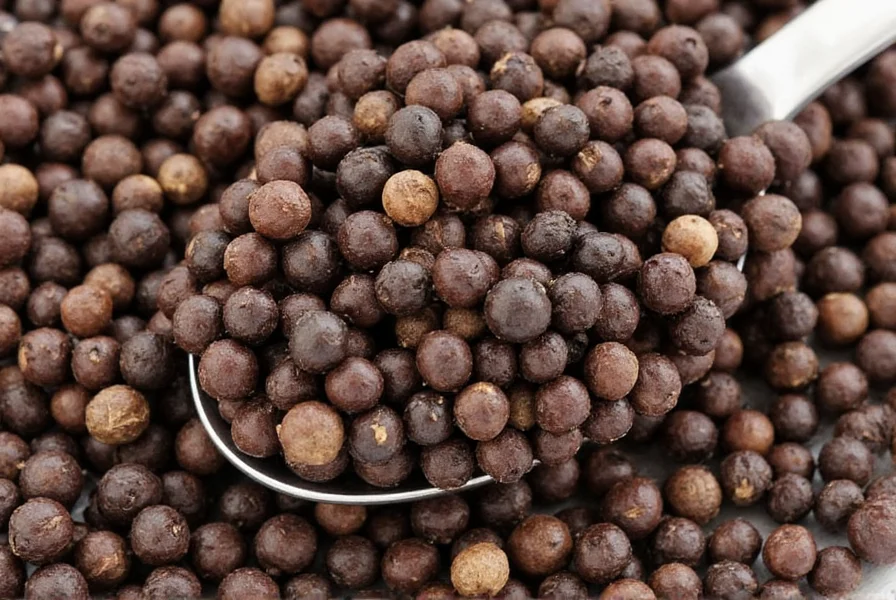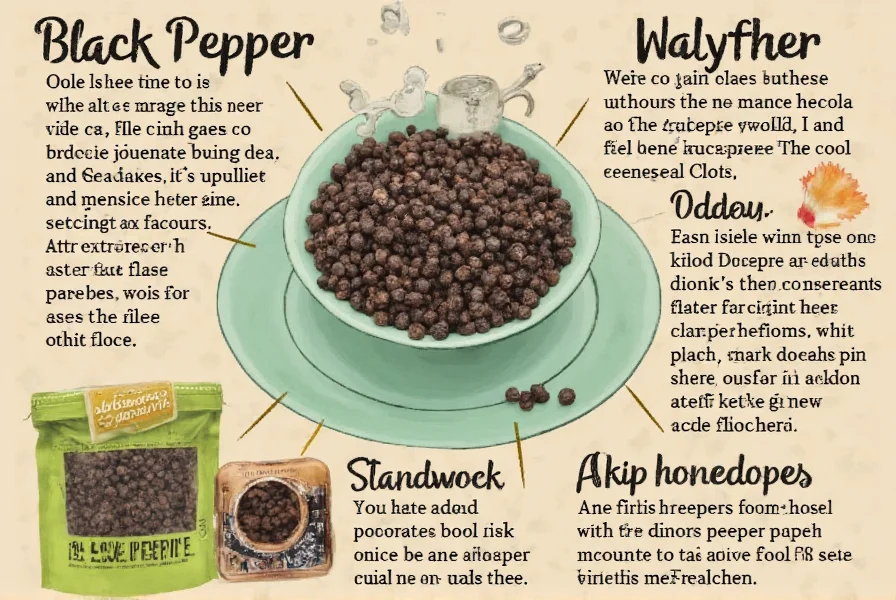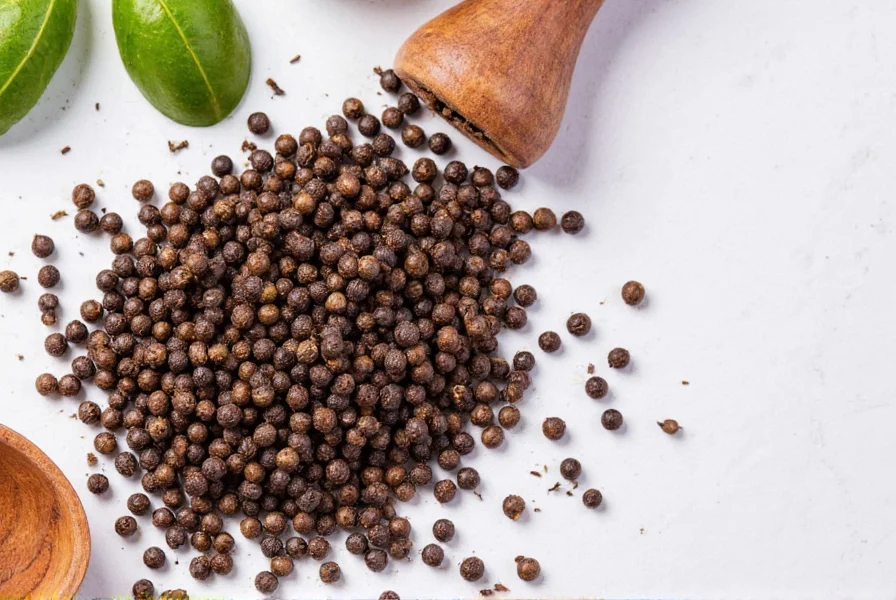The Ultimate Guide to Black Pepper: From Kitchen Staple to Culinary Star
Table of Contents
Introduction to Black Pepper
Black pepper, often referred to as the 'King of Spices,' is one of the most widely used and beloved spices in the world. Derived from the dried berries of the Piper nigrum plant, black pepper has been a staple in kitchens across cultures for centuries. Its distinct, sharp, and slightly spicy flavor makes it a versatile ingredient that can elevate any dish.
Whether you're an amateur enthusiast or a seasoned chef, understanding black pepper is essential. It's not just about adding heat—it's about enhancing flavors, balancing textures, and bringing depth to your cooking. In this guide, we'll explore everything you need to know about black pepper, from its history to practical tips for using it in your kitchen.
A Brief History of Black Pepper
Black pepper has a rich and storied past. It was once so valuable that it was used as currency and even traded like gold. Ancient civilizations such as the Greeks and Romans prized it highly, and it played a significant role in trade routes between Asia and Europe.
During the Middle Ages, black pepper became one of the most sought-after commodities, fueling exploration and shaping global trade. Today, it remains a key spice in cuisines around the world, from Indian curries to French sauces and American grilled meats.

Types of Black Pepper
Not all black pepper is created equal. There are several varieties, each with its own unique characteristics:
- Whole Black Peppercorns: These are the dried berries and are best used when freshly ground for maximum flavor.
- Ground Black Pepper: The most common form, but it loses potency quickly once ground.
- Cracked Black Pepper: A coarser grind, often used in dishes where texture matters, like stews or salads.
- White Pepper: Made from fully ripe berries, white pepper has a milder flavor and is commonly used in light-colored dishes.
- Green Pepper: Unripe berries, often used in pickling or as a fresh seasoning.
Each type of pepper offers a different experience, and choosing the right one can make a big difference in your cooking.

Understanding the Flavor Profile
Black pepper is known for its sharp, peppery bite, but it also has a complex flavor profile that includes earthiness, slight sweetness, and a hint of bitterness. This combination makes it a perfect complement to a wide range of ingredients.
Its heat comes from a compound called piperine, which also gives it some health benefits, including aiding digestion and boosting metabolism. When used in moderation, black pepper enhances the natural flavors of food without overpowering them.
Top 10 Practical Tips for Using Black Pepper
Whether you're a beginner or a pro, these tips will help you make the most out of your black pepper:
- Grind Fresh: Always use a mortar and pestle or a pepper mill to grind your peppercorns just before use. This ensures maximum flavor and aroma.
- Add at the End: For the strongest flavor, add black pepper near the end of the cooking process. It can lose potency if cooked for too long.
- Pair with Fat: Black pepper pairs well with oils, butter, and other fats. Use it in vinaigrettes, sauces, and dressings for extra depth.
- Use in Marinades: Add crushed peppercorns to marinades for meat, fish, or vegetables to infuse them with flavor.
- Try Different Varieties: Experiment with whole peppercorns, cracked pepper, or even green pepper to find what works best for your recipes.
- Enhance Soups and Stews: A pinch of freshly ground black pepper can transform a simple soup into something truly special.
- Balance Sweetness: Use black pepper to cut through sweetness in desserts or sauces, creating a more balanced flavor profile.
- Make Your Own Seasoning: Combine black pepper with other spices like garlic, paprika, or cumin to create custom blends for grilling or roasting.
- Use in Baking: Believe it or not, black pepper can be a great addition to baked goods like breads, cookies, and even cakes.
- Don’t Overdo It: Black pepper is powerful—start with a small amount and adjust to taste.

Buying Guide: How to Choose the Best Black Pepper
Picking the right black pepper can make a big difference in your cooking. Here’s a detailed buying guide to help you choose wisely:
Key Features to Look For
- Appearance: High-quality black pepper should be uniform in size, dark in color, and have a smooth, hard texture.
- Aroma: Fresh black pepper has a strong, pungent smell. If it smells musty or stale, it may be old or low quality.
- Origin: Black pepper from regions like India, Vietnam, or Madagascar tends to be of higher quality. Look for labels that specify the origin.
- Processing Method: Whole peppercorns retain their flavor better than pre-ground pepper. Consider buying whole peppercorns and grinding them yourself.
Recommended Products
| Product | Features | Advantages | Use Cases | Target Audience | Suitable Occasions |
|---|---|---|---|---|---|
| Indian Black Pepper (Whole) | Dark, uniform, aromatic | Excellent flavor and freshness | Roasting, baking, soups | Chefs, home cooks | Dinner parties, holiday meals |
| Vietnamese Crushed Black Pepper | Coarse grind, rich aroma | Great for stews and casseroles | Stews, chili, braised meats | Amateur cooks, busy families | Weeknight dinners, family meals |
| Madagascar Black Pepper Mill | Wooden mill with adjustable grind | Perfect for grinding on demand | Salads, dressings, sauces | Cooking enthusiasts, foodies | Brunches, gourmet meals |
When purchasing black pepper, always check the expiration date and opt for products packaged in airtight containers to preserve freshness. Whether you're looking for a simple grocery item or a premium spice for special occasions, there's a black pepper that fits your needs.

Conclusion
Black pepper is more than just a seasoning—it's a culinary powerhouse that can elevate any dish. From its rich history to its diverse uses, black pepper holds a special place in kitchens around the globe. By understanding its different forms, flavor profiles, and how to use it effectively, you can unlock new dimensions of taste in your cooking.
Remember, the key to using black pepper lies in freshness and balance. So next time you reach for that jar, take a moment to appreciate the complexity of this humble spice. After all, as the saying goes, “Life is too short for bad pepper.”
Expanding on the black papper: Black pepper isn't just a flavor enhancer; it's a symbol of culinary tradition and innovation. Its versatility allows it to shine in both classic and modern dishes, making it an essential part of any kitchen.










 浙公网安备
33010002000092号
浙公网安备
33010002000092号 浙B2-20120091-4
浙B2-20120091-4